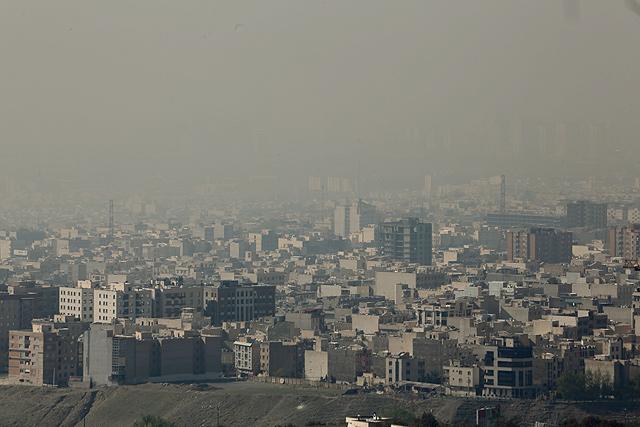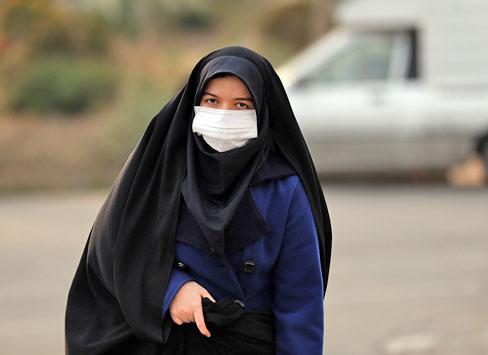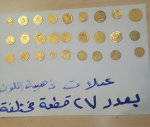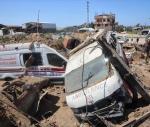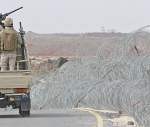You are here
Smog forces schools shut in Iran
By AFP - Dec 15,2019 - Last updated at Dec 15,2019
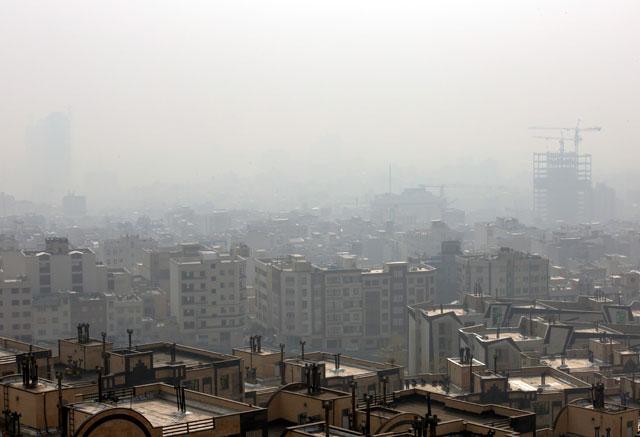
A general view taken from northern Tehran shows a blanket of smog covering the city as heavy pollution hit the Iranian capital on Sunday (AFP photo)
TEHRAN — Air pollution forced schools to close on Sunday in parts of Iran including Tehran, as the capital lay under a thick cloud of smog considered hazardous to health.
The pollution level in the capital was "unhealthy for sensitive groups" and officials warned the young, elderly and people with respiratory illnesses to stay indoors, with sporting activities suspended.
The decision to shut schools in the capital was announced late Saturday by deputy governor Mohammad Taghizadeh, after a meeting of an emergency committee on air pollution.
"All of [Tehran] province's schools except for Firuzkuh and Damavand counties are closed for Sunday," he said, quoted by state news agency IRNA.
Schools in the capital will close on Monday, the third day of the Iranian working week, he added later in a state TV interview.
An "odd-even" traffic scheme based on vehicles' registration numbers was imposed to restrict traffic in the capital, IRNA reported.
Trucks were banned outright in Tehran province.
Taghizadeh added that all activities at Tehran province's numerous sand quarries would also be halted.
Schools were also closed in the northern province of Alborz and in the central cities of Qom and Arak, IRNA reported.
"We are forced to live with and tolerate this situation," a Tehrani dentist, giving her name as Iran, told AFP.
"I think no one does their job properly in this country, be it the authorities or the people," she added, fumbling with a white mask, worn commonly on the capital's polluted days.
Grey cloud
A grey cloud hung over Tehran on Sunday, obstructing the view of the mountains overlooking the city to the north.
Average airborne concentration of the finest and most hazardous particles (PM2.5) was at 145 microgrammes per cubic metre for the 24 hours until Sunday noon, according to government website air.tehran.ir.
That is close to six times the World Health Organisation's recommended maximum of 25 microgrammes per cubic metre.
Tehran citizens blamed the authorities for rampant construction and lack of public transport diversification, leading to continuous pollution in the capital.
"As long as officials sit in cars with grey-tinted glass, they don't realise there's air pollution. Once they sit in cars like mine, they'll know the air is polluted and something must be done," said Mohammad, a taxi driver.
He said the solution is the "electrification of public transport" such as buses and taxis and expanding Tehran's usually crammed metro.
For the Tehrani Reza, the main suspect is the municipality because of "the construction permits given without considering that there must be green spaces, too."
To them, "money comes before citizens' health," Reza said.
The problem worsens in Tehran during winter, when cold air and a lack of wind traps hazardous smog over the city for days on end, a phenomenon known as thermal inversion.
Most of the city's pollution is caused by heavy vehicles, motorbikes, refineries and power plants, according to a World Bank report released last year.
"We can't do anything but wait for wind to blow or rain to fall," said student Bardia Danaie.
Related Articles
TEHRAN — Air pollution forced the closure of schools and universities in parts of Iran on Saturday, including Tehran, which was cloaked by a
TEHRAN — Iran shut primary schools in Tehran and other parts of the country on Sunday as thick smog blanketed the capital despite curbs on r
TEHRAN — Iran is to close schools for two days in Tehran, an official said on Saturday, following air pollution three times the acceptable l


